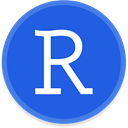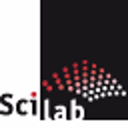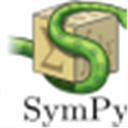Unlocking Insights: The Best DataCracker Alternatives for Survey Analysis
DataCracker has emerged as a promising web-based survey analysis tool, aiming to democratize data analysis. It offers a user-friendly, Office-like interface with powerful statistical testing, advanced features like WordCloud, Segmentation, and Predictive Modelling, all accessible via HTML5 in web browsers. While DataCracker excels at providing a middle ground between basic data collection software and complex statistical programs like SPSS, users often seek DataCracker alternatives that might better suit their specific needs, offer different pricing models, or provide a wider range of specialized functionalities.
Top DataCracker Alternatives
If you're looking to expand your data analysis toolkit beyond DataCracker, several robust platforms offer diverse capabilities, from advanced statistical computing to comprehensive symbolic mathematics. Here are some of the top contenders that can help you find and share insights from your surveys with even greater flexibility and power.

MATLAB
MATLAB is an enterprise-class commercial computing environment and programming language, offering extensive capabilities for numerical computation, data analysis, and visualization. It's available across multiple platforms including Mac, Windows, Linux, Web, Android, iPhone, and iPad. With features like Simulink for system simulation, batch plotting, and an embedded debugger, MATLAB serves as a powerful DataCracker alternative for users requiring sophisticated data manipulation and modeling beyond survey analysis.

R (programming language)
R is a free and open-source software environment for statistical computing and graphics. Available on Mac, Windows, Linux, and BSD, R is a highly versatile DataCracker alternative for users who need extensive control over their data analysis. Its vast ecosystem of packages supports advanced statistical methods, machine learning, and high-quality data visualization, making it ideal for in-depth survey analysis and data mining through features like automatic data loading.

RStudio
RStudio is a free and open-source integrated development environment (IDE) for R, available for Mac, Windows, Linux, and Xfce. While R is the engine, RStudio provides an intuitive user interface with powerful coding tools, including code completion, an embedded debugger, IDE features, session management, and syntax highlighting. For users leveraging R for statistical analysis, RStudio is an essential DataCracker alternative that significantly enhances productivity and workflow, especially for complex survey data analysis.

Mathematica
Mathematica is a definitive commercial technical computing system covering machine learning, neural networks, data science, and visualizations. Available on Mac, Windows, Linux, and Web, it offers extensive capabilities beyond simple survey analysis. Its features, such as symbolic computation, calculus solving, constructive geometry, equation solving, graphing calculator, and algebra, make it a powerful DataCracker alternative for researchers and professionals who require a comprehensive computational environment for their data projects.

PSPP
PSPP is a free and open-source software application designed for the analysis of sampled data. It features both a graphical user interface and a conventional command line interface, making it accessible to a wide range of users. Available on Mac, Windows, and Linux, PSPP offers functionalities for statistical analysis, including network analysis and graphs. As a DataCracker alternative, PSPP provides a cost-effective solution for users familiar with SPSS-like interfaces who need robust statistical capabilities for their survey data.

Xcos
Xcos is a graphical editor within Scilab designed for modeling hybrid dynamical systems. While not directly a survey analysis tool like DataCracker, its simulation capabilities make it a valuable DataCracker alternative for users involved in modeling dynamic processes related to their data. Xcos allows users to design, load, save, compile, and simulate models, available on Free, Open Source, Mac, Windows, and Linux platforms, making it useful for those who need to simulate scenarios based on their survey insights.

SymPy
SymPy is a free and open-source Python library for symbolic computation. Available on Mac, Windows, and Linux, it aims to be a full-featured computer algebra system while maintaining a simple codebase. For developers and researchers using Python, SymPy serves as a flexible DataCracker alternative, offering features like algebra, equation editing, equation solving, and simulation, which can be integrated into custom data analysis workflows for deeper mathematical insights from survey data.

Maple
Maple is a general-purpose commercial computer algebra system that allows users to enter mathematics in traditional notation and create custom user interfaces. Available on Mac, Windows, and Linux, Maple's advanced capabilities include graphing calculators and mechanical simulation. As a DataCracker alternative, it caters to users who need robust mathematical and symbolic computation alongside their data analysis, making it suitable for complex research and engineering applications.

RKWard
RKWard is a free and open-source frontend to the R programming language, specifically designed to make R more accessible. Available on Mac, Windows, and Linux, it provides an easy-to-use and transparent interface for leveraging R's powerful statistical capabilities. For those who find R's command-line nature daunting, RKWard offers a graphical environment, serving as an excellent DataCracker alternative for simplified, yet powerful, statistical survey data analysis.
Ultimately, the best DataCracker alternative for you will depend on your specific needs, technical comfort level, and budget. Whether you require a comprehensive statistical package, a powerful programming environment, or a user-friendly interface for complex data, the options listed above provide diverse pathways to unlock deeper insights from your survey data. Explore their features and find the perfect fit to elevate your data analysis game.